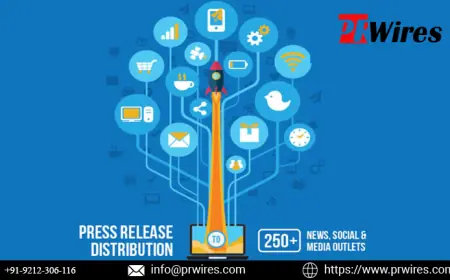The Importance of Hybrid Sales Training for Today’s Workforce
The Importance of Hybrid Sales Training for Today’s Workforce
In the ever-evolving world of sales, companies must adapt quickly to changes in technology, customer behavior, and communication methods. As businesses shift towards a more digital landscape, hybrid sales training has emerged as a crucial tool for ensuring sales teams are fully equipped to handle the demands of modern sales processes. In this article, we will explore why hybrid sales training is essential in today's workforce and how it can benefit your organization.
What is Hybrid Sales Training?
Hybrid sales training is a combination of traditional in-person sales training methods and digital or virtual learning platforms. This type of training helps sales professionals master both face-to-face selling techniques and online engagement strategies, making it ideal for today’s multi-channel sales environment. By embracing hybrid learning, companies can offer their teams the flexibility to learn at their own pace while still providing hands-on experience when necessary.
Adapting to a Multi-Channel Environment
The modern sales landscape is no longer confined to face-to-face interactions. Sales teams must now engage with clients through multiple channels, including email, phone, video conferencing, and social media. Hybrid sales training prepares sales professionals to excel in both traditional and digital environments. By learning how to conduct effective online presentations, engage with clients over video calls, and handle digital communication with ease, sales teams can ensure they are maximizing every opportunity.
For example, during the COVID-19 pandemic, many companies were forced to shift to online meetings and remote work. Salespeople who had already undergone hybrid sales training were better equipped to adapt to the changes and continue selling without interruption. As businesses return to in-person activities, these same sales professionals are able to transition smoothly between online and offline sales techniques.
Enhancing Communication Skills Across Platforms
One of the biggest challenges in modern sales is maintaining strong communication across various platforms. A hybrid sales approach teaches professionals how to effectively communicate their value proposition in both digital and physical settings. Whether it’s through crafting compelling emails, presenting via video conferencing, or negotiating face-to-face, hybrid sales training ensures that salespeople can tailor their communication style to the medium they are using.
The ability to communicate confidently and effectively in a virtual setting is a skill that cannot be overlooked. Many decision-makers are now more comfortable with virtual meetings, meaning sales professionals need to know how to build rapport and trust without being physically present. Hybrid training gives them the tools to engage clients effectively, regardless of the setting.
Increasing Flexibility and Adaptability
Sales processes are becoming increasingly complex, with more touchpoints along the buyer’s journey. A hybrid sales approach allows for greater flexibility in how sales teams interact with prospects. By mastering both in-person and digital techniques, sales professionals can pivot quickly based on the preferences of the buyer. This adaptability is essential in a world where customer expectations are constantly changing.
Hybrid training also ensures that sales teams are prepared for the unexpected. If an in-person meeting gets canceled, a well-trained salesperson can seamlessly switch to a video call or a phone conversation, ensuring that the deal stays on track. This level of flexibility can help reduce lost sales opportunities and improve overall customer satisfaction.
Blending Traditional Techniques with Modern Tools
While digital tools have transformed the sales process, many traditional sales techniques remain effective and relevant. Hybrid sales training emphasizes the importance of blending old-school sales fundamentals—such as building relationships and closing deals face-to-face—with modern tools like CRM systems, data analytics, and social media. This holistic approach ensures that sales professionals have a comprehensive skill set that can be applied in any situation.
In addition to honing their interpersonal skills, hybrid-trained sales teams are more likely to leverage technology to improve efficiency and track performance. From using data to identify new leads to automating follow-up emails, hybrid sales training helps sales professionals harness the power of modern tools while maintaining the personal touch that makes sales interactions successful.
Improving Sales Performance
Sales training of any kind can help improve performance, but hybrid sales training goes a step further by preparing sales teams for the full range of challenges they might encounter in today’s diverse marketplace. By offering the flexibility to operate across multiple channels and engage with customers in various settings, hybrid training maximizes the potential for success.
According to industry research, companies that invest in formal sales training programs see a significant increase in sales performance. With hybrid sales training, the results can be even more impressive, as sales teams are better prepared to adapt to changing customer behaviors and market conditions.
Conclusion
Hybrid sales training is no longer optional—it's essential for modern sales teams. By equipping your team with the skills to thrive in both traditional and digital sales environments, you ensure that they can adapt to any situation and provide a seamless customer experience. For businesses looking to stay competitive in today's marketplace, investing in hybrid sales training is a crucial step towards achieving sustained growth.
If you’re looking to boost your team’s sales skills through hybrid sales courses, formal sales training, or sales skills mastery course, visit CWSalesConsult to explore our range of sales training programs designed to help your team master both the art and science of modern selling.
What's Your Reaction?
 Like
0
Like
0
 Dislike
0
Dislike
0
 Love
0
Love
0
 Funny
0
Funny
0
 Angry
0
Angry
0
 Sad
0
Sad
0
 Wow
0
Wow
0















































